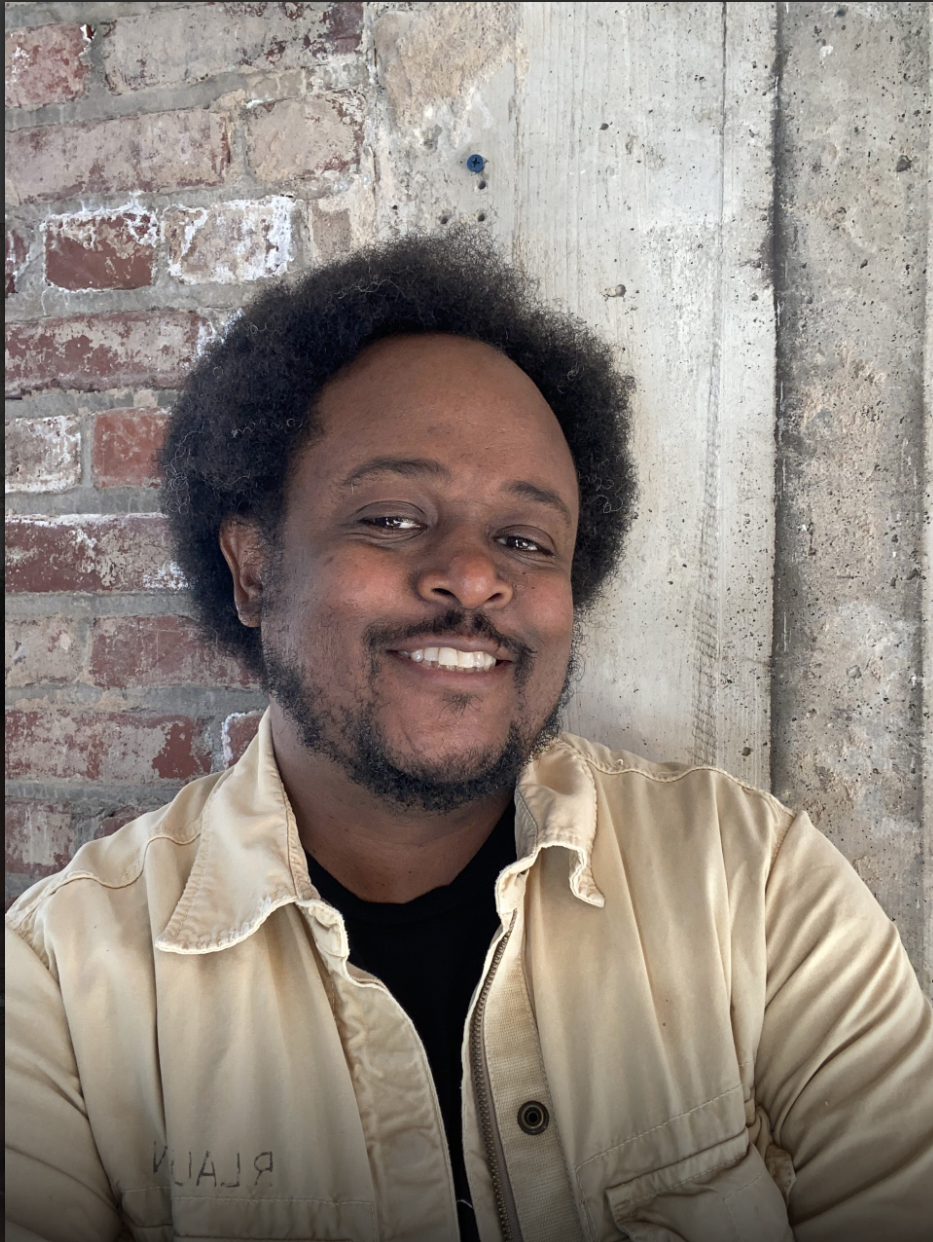“Behind the South” – Ryan (R.L.) Nave, Editor-in-Chief of Reckon, Discusses How His News Organization Helps Elevate Overlooked Communities in America.
Headshot of Ryan “R.L.” Nave.
About Ryan (R.L.) Nave
Ryan “R.L.” Nave became Reckon’s editor in May 2020, overseeing the newsroom’s transformation into a millennial-focused brand in the South. Before Reckon, he was the editor-in-chief of Mississippi Today, the state’s largest newsroom. There, he played a pivotal role in launching the nonprofit newsroom, led the legislative team, and managed coverage of criminal justice and environmental issues.
Nave also worked as an editor and reporter at the Jackson (Miss.) Free Press and as a staff writer for Illinois Times in Springfield. His independent journalism has been featured in prominent publications like Serial/The New York Times, Ebony, The Root, and The Source, earning numerous state and national journalism awards. Nave has led award-winning teams, receiving prestigious honors like the Goldsmith Prize for Investigative Journalism and an Edward R. Murrow Award.
Nave held fellowships at City University of New York, University of Colorado-Boulder, and Northwestern University’s Medill School of Journalism. An active member of journalism associations, he served as president of the Jackson, Miss., chapter of the National Association of Black Journalists and is currently the chairman of the board for the Jackson-based Center for Ideas, Equity & Transformative Change. Nave hails from University City, Mo., near St. Louis, and is a graduate of the University of Missouri.
Q&A
What brought you to Reckon?
So I joined Reckon in the spring of 2020. Which if you recall was the height of the pandemic. I’ve been working in Mississippi, running the newsroom at Mississippi today. The offer that I got at Reckon was to do similar work but across the entire South. Also there was a little bit of you know, the fact that we were trying to build a new and a different newsroom, during a pandemic, was something that was honestly, very exciting to me. It was a little bit of an opportunity in chaos. I signed up and moved to Birmingham, that summer from Mississippi, and I’ve been here ever since.
Can you talk a bit about Reckon’s mission as a news organization?
So we are a national newsroom that covers the issues that are important to and inspire America’s emerging majority. A lot of our work is geared towards younger folks, millennials and Gen Z. Our audience is more diverse and intersectional. It skews black indigenous, other folks of color, our audience skews female or them presenting. Our work is very much rooted in kind of Southern traditions of movement building and coalition building.
Can you provide some examples of stories or reporting that Reckon has done recently that exemplify the organization’s commitment to covering the challenges and people powering change in the United States?
I would point to some of the work that we’ve done, you know, around the Hamas-Israel War. We’re not covering the war, the conflict per se. The focus of our work is always how Americans respond. We’ve been covering the response of folks who are like very multi-phase intersectional. You know, both are like lending their voices to protest but also calls to end islamophobia, antisemitism so forth and so on. Some of the work we’ve done, particularly in the past year around covering queer communities in America. We have a full-time queer communities reporter who covers threats against queer people, in terms of like legislation that is being proposed in a lot of cases passed in legislatures. But, also holding space for you know, stories about queer joy and the humanity of queer people. We write about queer targeted legislation. But, we also have a series that’s about trans folks who died and who were killed violently, like censoring their humanity and not just their deaths. That is also true of the work that we do on Black Joy, which was very much conceived as an antidote to a lot of the Black trauma reporting. That’s very necessary, but it’s also specifically and very intentionally about highlighting and uplifting the ways that black people celebrate and practice joy in spite of trauma. I think we’ve done some good client reporting in the past couple months. I mean, I would brag about all of our reporting. We’ve had some really interesting partnerships. We just wrapped up a series this week with the Center for Public Integrity in D.C., which is a nonprofit newsroom about discrimination against black farmers and sort of this legacy and culture of discrimination at agencies like the USDA that has caused access to farming to be less equitable than it should be.
How does Reckon ensure that it represents a diverse range of voices and experiences in its reporting, particularly for topics like climate justice, racial justice, and LGBTQ+ rights?
Well, I don’t necessarily think that our goal is to try to represent all voices. I think we try to represent as many different perspectives that we’re likely to find in our audience as we can. We have gaps and blind spots like any other newsroom. We have assembled a newsroom and a team that tries to mirror the audience that we’re going after. But, it’s cliché to say that like diversity is a journey not a destination, so forth and so on. But part of it is unlike a lot of legacy news rooms where you’re told basically, like leave your identity at the door because, you know, we’re only gonna report objectively and dispassionately; and you know, your identity is going to like bias you as a journalist. We actually say the whole of your identities that you hold is actually valuable to our journalism and valuable to our audience. We do invite folks to like bring that into their work. It’s up to editors to make sure. It’s not about balance, we’re not a place where we do false balance. It’s really about saying, ‘Hey, this might be a perspective that folks in the Reckon audience would appreciate; so can we bring in a different source to speak to that?’ Whether or not, it could be a news organization or an expert, or an academic. I think understanding that no story is the final story, no story is gonna be the definitive work; every single story that we publish, we could probably do a different version of with different stories. We often come back to stories and bring in different types of perspectives. We also have what we call perspectives section which in a traditional legacy news room would be like sort of the opinion pages. But, it’s a lot of first-person perspective. We had a prospective piece earlier this year that was written or as told to out as told to our perspectives editor from a migrant worker that was about, ‘don’t see us just for our labor, see us for our humanity.’ So it’s also, sometimes about us as journalists not necessarily being the gatekeepers, not necessarily being like a filter for people’s words. But also removing ourselves from the equation or reducing our role so that we can highlight those voices.
What is the role of reader engagement in Reckon’s journalism, especially when it comes to encouraging readers to think critically about the challenges faced by the nation and how to address them?
I don’t know that it’s our role to encourage people to think critically. I mean, I think that we hope that people think critically when they read our work, we certainly invite dialogue and engagement through folks comments on our social media feeds. They comment in a different way on Facebook because these are very much different audiences. We’ve done Twitter Spaces around certain issues, we’ve partnered on some virtual events over the course of the past year to create dialogue and I see that more as a place for us. We hope to spark dialogue, convene conversations, share ideas and perspectives. In the hope that people in our audience take something away from being introduced to a different perspective or idea and being equipped in some way to engage in a different part of their lives. We always say that we wanna do work that sparks conversation in the group chat. And so it’s more about that than encouraging people to think critically. It’s really about sparking conversation.
Is there a story or article published by your team that you were really proud of?
This summer we launched a podcast called ‘Panther: Blueprint for Black Power,’ which was an interesting because the project started when Reckon was solely focused on covering the South. We’ve since pivoted to being more of a nationwide newsroom that covers Southern stories. But we don’t see ourselves to think of ourselves as only talking to Southerners. So Panther started when we were only a Southern focused outlet. So it also had to evolve over time, we started working on that project in August of 2020. Because I actually went to the Bay Area and took some pictures for it. We just published it in August of this year. It’s a fantastic podcast. It’s hosted by a Pulitzer Prize nominee and a journalist from Birmingham. Two people with deep roots in both Alabama, but also in that kind of activist tradition. The goal of that show was really to demonstrate how folks organized in, especially the rural south, in Alabama’s black belt, in the Mississippi Delta, really did become the blueprint for modern activist traditions and movements. So it’s very much about connecting the past to the present through this lens of organizing in the South. It’s really a project that encapsulates the best of everything Reckon does.
As editor-in-chief where would you like to see the publication go in the future?
Well, they’re journalistic goals, and there are business goals. Not that they’re mutually exclusive. But, you know, we think of Reckon as an organization that fills critical gaps in that we don’t only center our reporting on people that we consider in our audience. We very intentionally do not necessarily aspire to be a part of the White House Press Pool or to cover Congress. We only cover how the politics and policies coming out of Washington, D.C., impact folks and how people respond to them. There is really no destination media anymore. Those days are long gone. But for people who are not super plugged into the news because it’s just a bunch of old people in suits on Capitol Hill talking. But for people who are interested in the world, who have thoughts and ideas about what’s happening in the world, we want to say, ‘Hey, Reckon can be a news home for you.’ The business goal is to make Reckon, to the extent it’s possible at all, a sustainable business that will outlast me, our staff, and everybody else.




